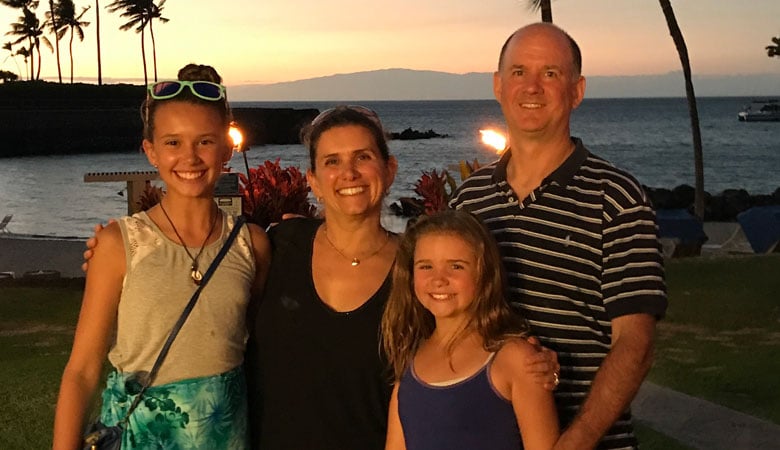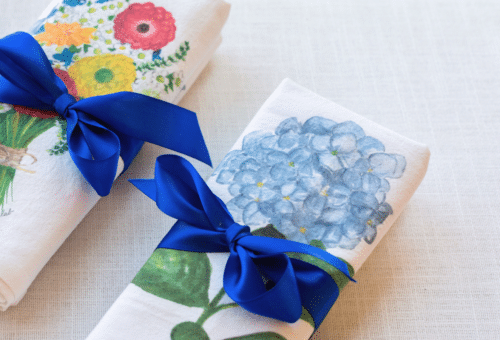Lauren Hanley, MD, FACOG, FABM, IBCLC, the only Boston obstetrician who is also a lactation consultant, recently joined our medical board. We caught up with her and learned about her deep commitment to breastfeeding women and their babies.
Many pediatricians get involved in the field of lactation, but obstetricians are less common. How did you become interested in lactation? What do you bring to the field as an obstetrician who is also an IBCLC?
I became interested in the field of lactation like many women physicians do. I had significant difficulties nursing my first daughter in 2004. I had a long labor, followed by a failed attempt at vacuum delivery and then a cesarean delivery. I was having severe pain with latching my daughter, Maya, and the lactation team and rest of the staff were having trouble supporting us. She lost more weight than was safe and we went home using a nursing supplementer with formula and I was in tears. About to give up, my colleague and friend, a labor and delivery nurse, took me to a La Leche League (LLL) meeting where I met a community of amazing women and Leaders. Ann Marie Lindquist (now the milk bank’s Director of Community Relations) patiently sat with Maya and me and she helped her to latch successfully and without pain. Something clicked for us and that’s when I knew I could and would breastfeed my daughter. That’s also when I knew that we could do better as physicians to help support our breastfeeding women and their babies.
After that, I got involved with the Massachusetts Breastfeeding Coalition, continued to go to LLL meetings, and started to investigate lactation as a field of interest as an OB/GYN physician.
Unfortunately, I got almost no lactation education in medical school and minimal education during residency. My own OB had trouble supporting me because she also didn’t have the knowledge base to do so. My pediatrician recommended I use formula and told me my daughter would still be healthy.
That’s a long-winded answer to the basic question of what brought me to this field!
In 2011, I received an award from my department to have the time and support to work toward becoming an International Board Certified Lactation Consultant (IBCLC) and I completed this in 2012. Most physicians in the field of Breastfeeding Medicine are pediatricians or family medicine doctors. There is a small minority of obstetricians, and I am the only OB/IBCLC in Boston! I bring my 22 years of commitment to women’s health to this field, as well as my passion to teach my colleagues and the residents and students with whom I work on a local level and beyond. I have been slowly learning more and more pediatrics on my journey, and I have always been very interested in breast health, so this is a unique opportunity to be an expert in this field so that I can care for women with complex lactation challenges.
We understand that you recently achieved the honor of Fellow of the Academy of Breastfeeding Medicine (FABM). Congratulations! How does one achieve an honor like that, and what does it mean for you as a practicing physician?
I became a Fellow of the Academy of Breastfeeding Medicine in 2017, and I am very proud. This group is comprised of a small number of physicians in all fields of practice who have demonstrated exemplary work in research and education in the field of Breastfeeding Medicine. There is an application process including letters of recommendation. It was a very special honor that I was awarded on my birthday last year at our International Meeting in Atlanta!
You spearheaded the effort to have your hospital designated as Baby-Friendly. That is a significant achievement for any hospital, and perhaps even more daunting for a hospital the size of Massachusetts General Hospital (MGH). What advice would you give to others working toward the goal of Baby-Friendly?
The achievement of the Baby-Friendly Designation at the MGH in 2015 was the culmination of many years of hard work and dedication for a large team of staff. It was an amazing experience for me to work beside many team members who were dedicated, organized, and committed to this because of how it supports women and children. Being born in a Baby-Friendly hospital means you are being supported and taught by maternal/child staff who have undergone the education to support a woman to achieve her infant feeding goal. It also means the mother-infant dyad will be exposed to evidence-based practices to help get breastfeeding off to the best start. It helps eliminate bias and close gaps because each dyad should be supported with consistent, evidence-based methods. Lastly, if breastfeeding is not in the plan, safe formula preparation is taught, along with other steps that are still extremely important for newborn health, such as skin-to-skin care.
Advice I would give to others on this journey: have patience and stay dedicated. Institutional change takes time but can be achieved. Lastly, team work and collaboration are far stronger and more effective than single individuals working alone.
How did you first learn of donor milk, and of Mothers’ Milk Bank Northeast?
Mothers’ Milk Bank Northeast was created while I was on the board of the Massachusetts Breastfeeding Coalition, so I knew about it from its inception. I incorporated slides into my presentations about different lactation topics early on to try and teach my OB colleagues, many of whom had never heard of milk banking. MGH was a relatively early adopter of using donor milk in the NICU and so I was aware of it through collaboration with my NICU colleagues and some of my own patients using it for their preterm or critically ill babies. I have discussed milk donation with many patients, such as those who have experienced infant death and those with oversupply looking to help others.
MGH uses donor milk not only for babies in the NICU but also in other circumstances. Were you involved in the effort to bring in donor milk and expand its use? What tips do you have for educating healthcare providers and parents about donating and receiving milk?
We have expanded our use of donor milk at MGH to our Level I babies as well as our Special Care and NICU babies. I have been working with our Baby Friendly-task force for several years to help implement this strategy as a bridge to continue exclusive breastfeeding for term babies who need some short-term supplementation, either in the hospital or perhaps continuing for a short time after discharge. I have also helped educate the OB and midwifery team about this program so they can discuss this with women at risk even in the antepartum setting.
Another population where we have used donor milk for term babies is women with a history of breast cancer who have undergone mastectomy. We have been able to provide donor milk for several of these women while in the hospital so that their babies could have an exclusive breastmilk diet that continued even after discharge. The incidence of women with breast cancer who are having babies is increasing and this is a special population whose dreams to breastfeed sometimes can’t be realized due to surgery or radiation treatment.
As a member of the Harvard Medical School faculty, do you have opportunities to educate medical students and residents about lactation and donor milk? What kind of lactation education did you yourself receive in your training?
As an Assistant Professor at Harvard Medical School, I am able to teach the medical students about lactation during their OB/GYN clerkship. In addition, I helped design and implement a program where the students shadow a lactation consultant on the postpartum floor for one half day during their OB rotation. Lastly, some medical students work with me in my outpatient lactation clinic. I also teach the OB/GYN residents on the Labor & Delivery Unit at MGH. We routinely implement skin-to-skin practices at vaginal and cesarean deliveries and are practicing family-centered cesarean deliveries routinely, including clear surgical drapes, delayed cord-clamping, and skin-to-skin in the operating room. This has been an amazing transition over the past several years and I think that the families we serve really appreciate these important facets in the birth process. We care for many high-risk women in our practice and really try to continue a sense of normalcy as much as is safely possible. Finally, I have done several Grand Rounds presentations for my own department, as well as lectured throughout the state on various topics surrounding lactation and safe implementation of Baby-Friendly practices. I will be speaking at the Massachusetts Breastfeeding Coalition conference in September on the topic of Marijuana Use in Pregnancy and Lactation.
Tell us about your interest in our medical board. What do you bring to it, and what do you hope to take away?
I was thrilled to be invited to the medical board of Mothers’ Milk Bank Northeast, as well as to be the first obstetrician on the board! I will bring a different perspective as an obstetrician who is keenly familiar with how we can educate families about milk banking in the antenatal period, especially those families who are at high risk of preterm delivery, or whose ill infants who may need donor milk. I can help disseminate information to my own colleagues as well as bringing issues to the attention of the American College of Obstetricians and Gynecologists (ACOG), because I serve as the National Chair of the Breastfeeding Expert Work Group. There may be ways that ACOG and HMBANA can collaborate in the future and I am excited to explore that.
I hope to take away more knowledge about human milk banking and research on human milk, as it’s an area that has always fascinated me!
Is there anything else you’d like to tell us about your professional interests?
On a more personal note, it has been an honor to work in the lactation community with such hard-working and dedicated professionals. I have only been working in this field for about 13 years, but I am amongst colleagues who have been doing this for many decades, when breastfeeding was not highly recommended. I am inspired by these nurses, lactation consultants, peer educators, midwives, and physicians, and I am thankful they have taken the time and energy to teach me. A younger obstetrician told me recently that I am the reason she became an IBCLC. Those moments make all of our hard work worth it and continue to inspire me every day.
Tell us about your background, your family, and your personal interests.
My two daughters are now 13 and 11 and know more about lactation and childbirth than average! They help me spruce up my slides and add photos to my presentations. My husband Jim has always supported my own breastfeeding as well as my dedication to teaching others over the years and I am forever grateful.
Thank you for your interest in learning about my background. I am excited to begin my journey with Mothers’ Milk Bank Northeast!









